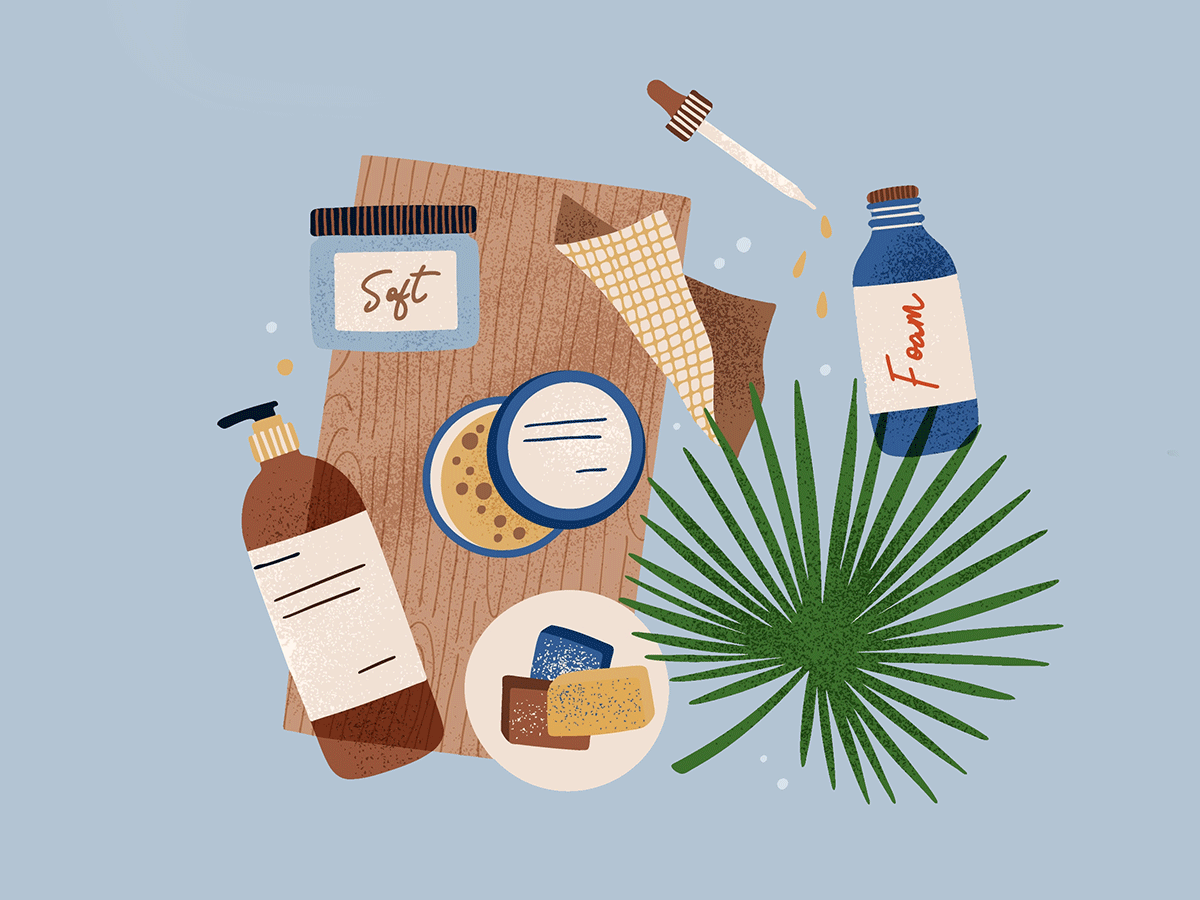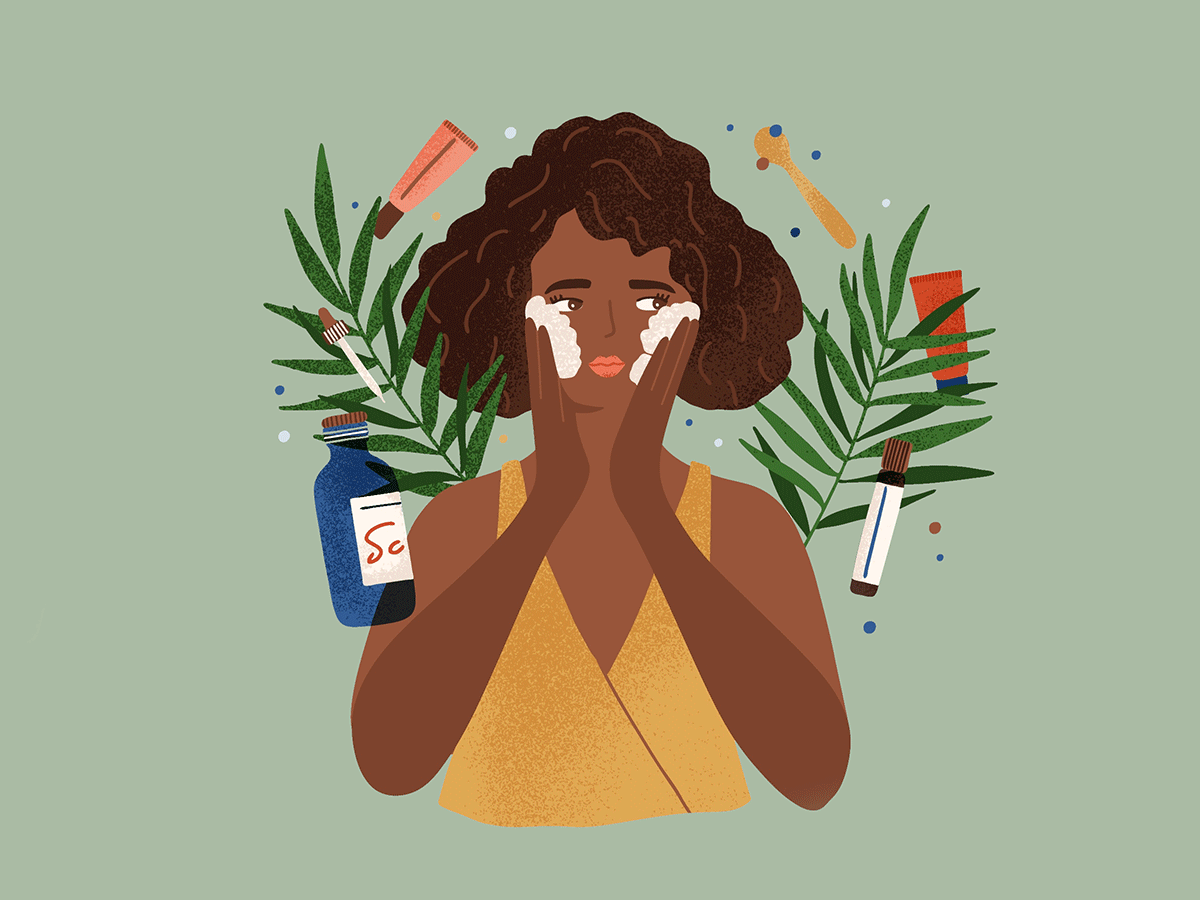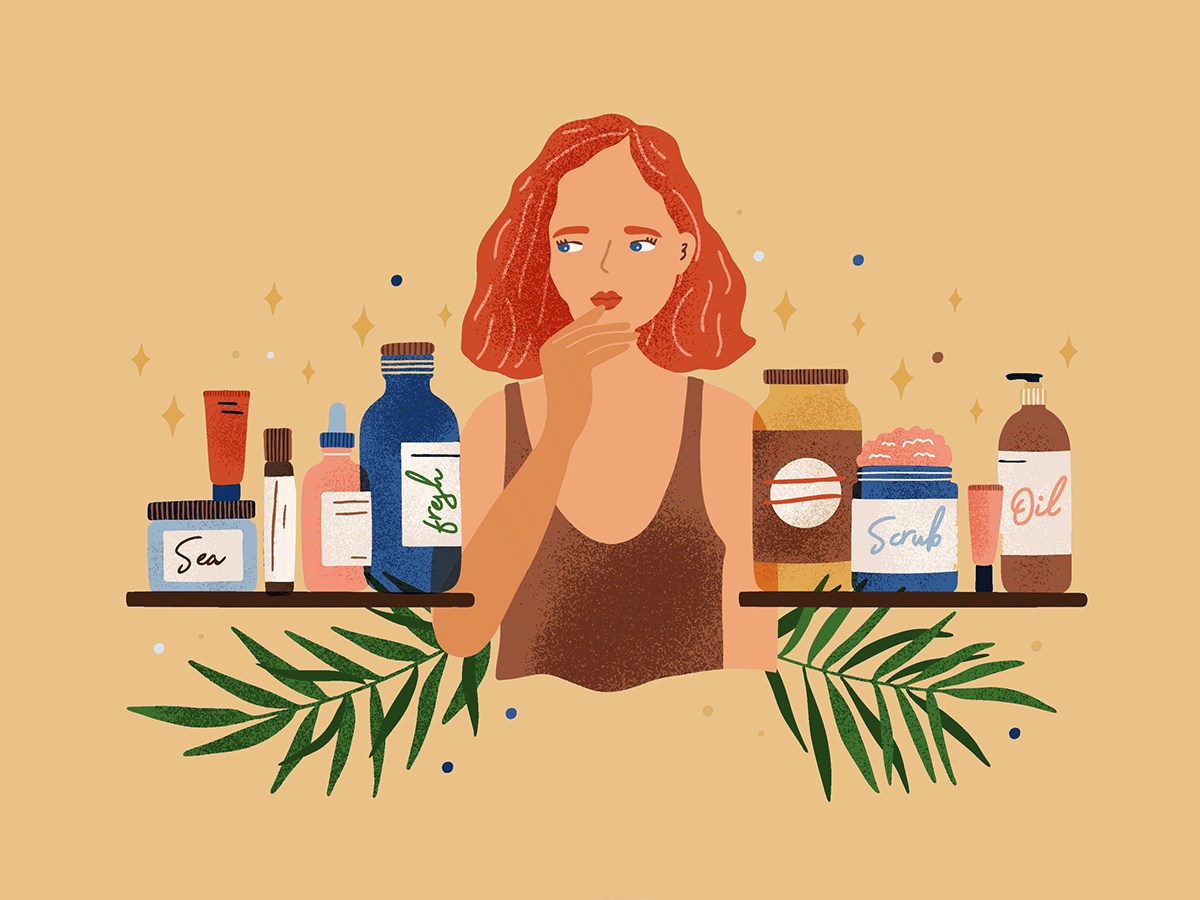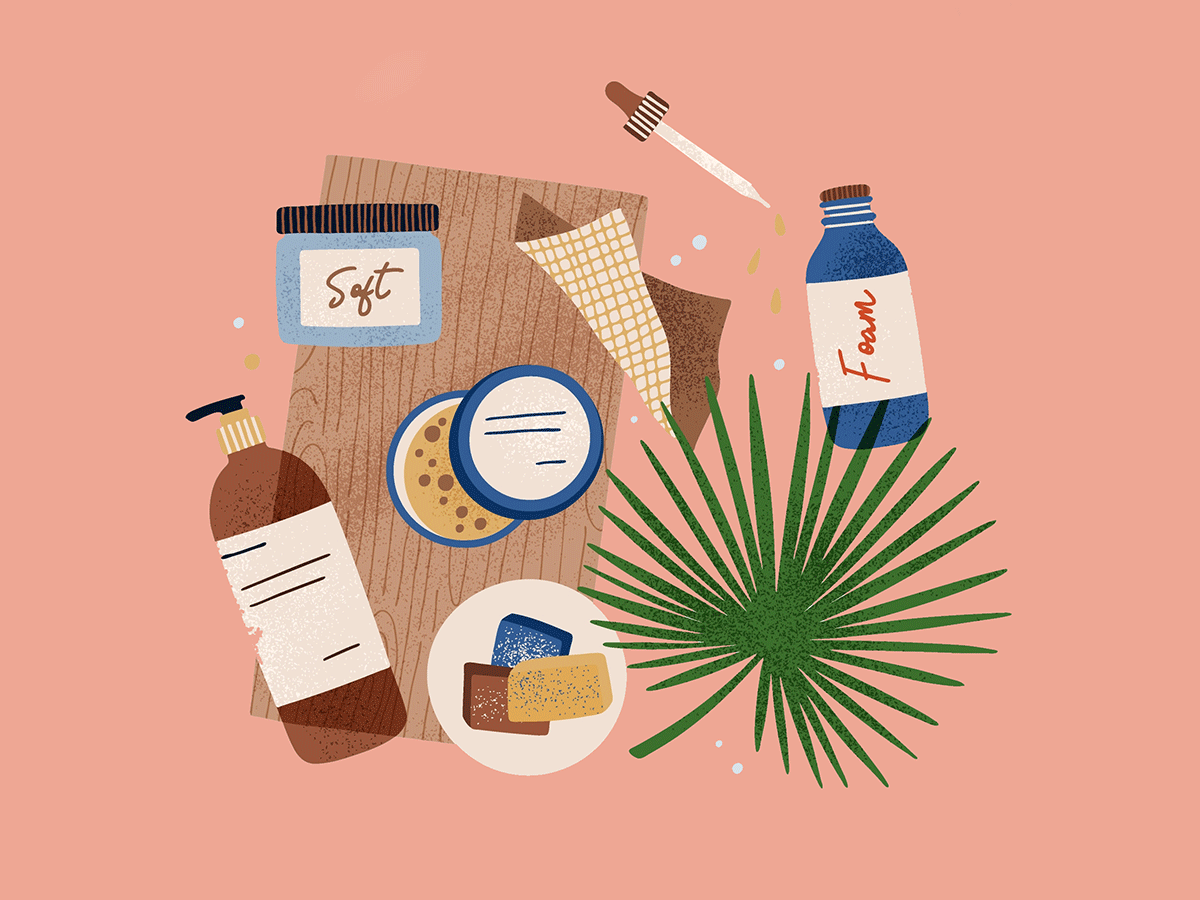
Skin-care tips for quarantine
Whenever I’m home, alone, with too few distractions, I think about this Sex and the City quote, said by Charlotte York: “Before I was married, I used to study my pores in a magnifying mirror for an hour each night.” It’s what Carrie Bradshaw describes as “secret single behaviour”—the weird habit you turn to when no one is around—and, evidently, when you are in quarantine.
By day one of working from home post-Trudeau’s request for social distancing, hour two, with the natural light beaming onto my makeup-free face, I had analyzed every mark, line, and pore, questioning it’s arrival, purpose, and potential length of stay. By hour three, I had booked a virtual appointment with Dr. Julia Carroll, a dermatologist at Compass Dermatology in Toronto, for the following day.
“As we’re here talking, I’m seeing this long string of texts coming in from patients who are texting our office directly,” says Dr. Carroll, when I asked if she’s seen a spike in appointment requests. ‘It’s going to ramp up.” It’s clear Charlotte and I are hardly alone with our obsession. And it’s no surprise, really. As Jia Tolentino wrote in a 2016 piece for The New Yorker, skin care has become a coping mechanism. Focusing on it and zeroing in on our flaws may not make us feel good, but believing we’re solving our skin issues makes us feel better and in control.
And so, I asked Dr. Carroll to share some tips for taking care of your skin in the quarantine era. How can we use this downtime to target skin woes and transform our skin into its best version? Here, eight things to do, when you’re at home alone with your magnifying mirror for the foreseeable future, that’ll give you better skin.

1. Stop analyzing and seek expert advice
In many cases, a dermatologist can assess the skin issue over a video call and prescribe a medication. So, if you’re worried about a rash, hives, acne, rosacea, or a suspicious mole, consider requesting a virtual appointment to put your nerves at ease. Recently, Dr. Carroll took a video call with an elderly woman who had a bad skin rash from head to toe. “Her daughter went over to her place and we got on the video call, and I was able to do exactly what we would’ve done if she had come to the office,” says Dr. Carroll. The call relieved the patient of stress and kept her out of the emergency room, which is crucial at this time.

2. Clean out your products
“We all have tons and tons of products—drawers of things that have been there for three or four years,” says Dr. Carroll, “so it’s a good time to go through them.” Toss out anything that’s past its expiry date (here’s a guide that’ll help with that). Old products can decompose and harbour bacteria, which, if used, can lead to skin irritation and even infections.
(You may also want to toss any products that contains these toxic ingredients.)

3. Commit to a skin-care routine
It’s the perfect time to build a proper skin care routine, says Dr. Carroll. Use the quarantine to get comfortable with a new product or collection of products. She suggests starting with SPF, if you don’t already use it. Get in the habit of applying it every single day (yes—even when you’re not leaving the house), to get used to adding it to your skin-care lineup.
While you’re limiting your social interactions, it’s also a good time to start using a new ingredient that may require your skin to go through an adjustment period. Retinol, for example, may cause breakouts, flaking, and redness—also known as the Retinol Uglies—for a few weeks. Get through this period in quarantine, and you’ll be reaping the ingredient’s amazing benefits once life gets back to normal.

4. Watch it with the exfoliators
“We already have dry, chapped hands from washing them all the time,” says, Dr. Carroll, “let’s not do that to our faces.” Just because you’re spending more time at home doesn’t mean you’ll benefit from more exfoliation. Stick with your normal skin care routine, if that works for you, and save yourself from irritating your skin.

5. Don’t over-moisturize
Likewise, it may not be a good idea to sit in a moisturizing face mask all day. “Don’t ramp it up just because you have the time,” says Dr. Carroll, “unless it’s something you should’ve been doing anyway.” The overuse of hydrating and moisturizing products can make your skin too oily and cause breakouts, she says.
(Battling the blemishes? Here are the best moisturizers for acne-prone skin.)

6. Don’t rely on face masks
“I’m not a big proponent of masks,” says Dr. Carroll. “They’re fun, but it’s not something, as a dermatologist, that is part of my usual recommendations for people.” The more face masks you apply does not mean the better you skin will be. Save them for a time when you simply want to relax or target a single skin care woe.

7. No need to let your skin “breathe”
The more products you leave off your skin, the more fresh air it gets, the less irritated it’ll be, and the better it will look, right? Makes sense, but that’s not quite true. “From a perspective of makeup, if it tends to make you break out, there’s a benefit in taking a break from that,” says Dr. Carroll. “But if someone has a routine, if they have their toners, serums, moisturizers they like, don’t break from that just because you’re at home.”

8. Hands off your face—even at home
“People are going to be bored at home and will start looking in their mirrors and will start to squeeze and poke,” says Dr. Carroll. “Keeping your hands off your face is a good recommendation from a coronavirus perspective but also so we don’t have people scarring their face and worsening acne.” She suggests booking some Zoom meetings with your girlfriends, getting busy with other at-home activities, throwing out that magnifying mirror, and making an effort not to get obsessed with your skin.
Next, check out the quarantine essentials BH editors scooped up.
